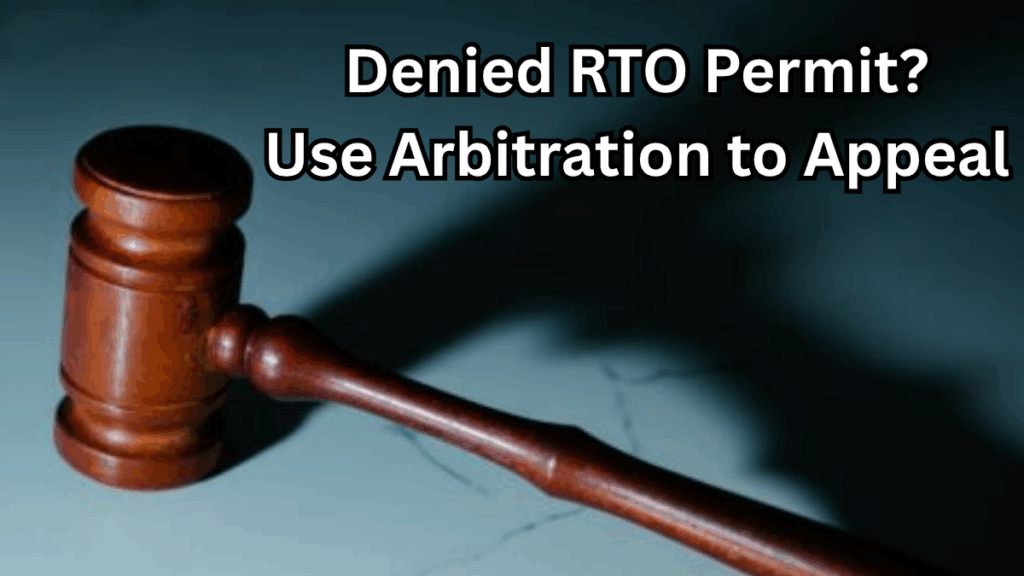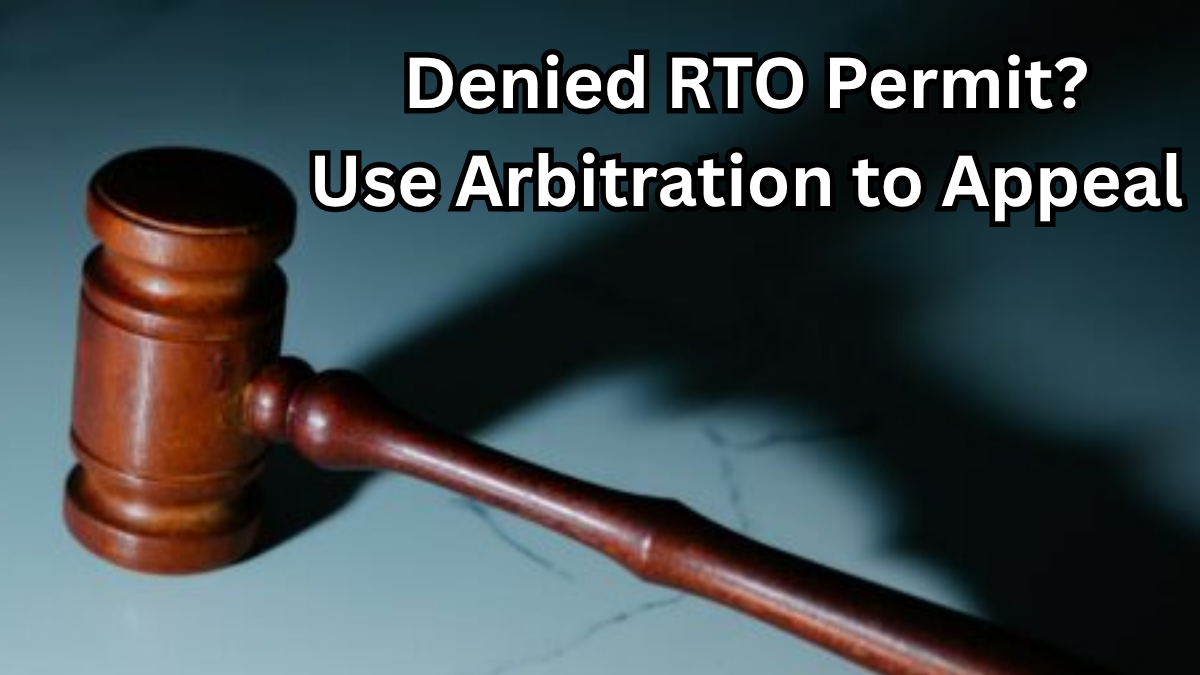Facing rejection from the RTO for your transport permit can feel like hitting a dead-end—especially if your livelihood depends on it. But there’s good news: you’re not powerless. If your Transport Permit License Appeal is denied, you can now legally challenge the decision using the RTO arbitration process.
Let’s break down what this means for you in 2025 and how you can take the next steps smartly and legally.

What Is a Transport Permit & Why It Gets Rejected
A Transport Permit License allows vehicles—especially commercial ones—to operate legally on public roads. The Regional Transport Office (RTO) issues these permits based on vehicle compliance, route availability, and proper documentation.
Common Reasons for RTO Permit Denial
-
Incomplete documentation or outdated papers
-
Vehicle not meeting environmental or technical norms
-
Overcrowding of vehicles on proposed routes
-
Lack of proper business justification
-
Failure to comply with earlier transport regulations
What To Do When Your Permit Is Denied
When your application is rejected, you’ll receive a formal notice from the RTO. Don’t panic—it’s not the end of the road. You have a legal right to appeal the decision.
Here’s where arbitration comes into play.
Understanding the RTO Arbitration Process in 2025
Arbitration is a legal but simpler and faster alternative to taking the matter to court. It’s handled under the Motor Vehicles Act and aims to resolve disputes quickly between applicants and RTO authorities.
Steps in the Arbitration Appeal Process
| Step | Description |
|---|---|
| 1. Review Rejection Notice | Carefully go through the reasons cited by the RTO for denying your permit. |
| 2. File an Arbitration Petition | Draft and submit a petition for arbitration to the designated state transport tribunal or authority. |
| 3. Appoint an Arbitrator | Usually, the state authority assigns an independent arbitrator to hear your case. |
| 4. Attend the Hearing | Present your case, supporting documents, and counterarguments. You may hire a legal advisor. |
| 5. Final Decision | Based on the evidence and hearing, the arbitrator gives a ruling—binding on both parties. |
This entire RTO arbitration process is typically completed within a few weeks to a few months, depending on your state’s procedures.
Why Arbitration Is Better Than Traditional Court Appeals
-
Faster resolution (no long court battles)
-
Less expensive than hiring legal teams for court trials
-
Confidential—matters remain private
-
Expert handling, as arbitrators are trained in transport laws
Using the RTO arbitration process is your best bet in 2025 to win a Transport Permit License Appeal without dragging the matter through lengthy legal channels.
Tips to Strengthen Your Appeal
If you plan to go the arbitration route, these steps can improve your chances:
-
Organize all vehicle documents (RC, insurance, fitness certificate)
-
Get professional help from a transport lawyer or consultant
-
Provide route maps and justification for permit needs
-
Highlight your compliance history with earlier RTO regulations
Final Word
Getting denied a transport permit isn’t the end—it’s a redirection. With the RTO arbitration process, 2025 offers a practical legal route for those seeking justice in transport-related issues. If your Transport Permit License Appeal gets rejected, take a deep breath and explore arbitration—because your business deserves a second chance.
FAQs
Q1: What is the time limit to file a Transport Permit License Appeal through arbitration?
You usually need to file your appeal within 30 to 60 days from the date of permit rejection. Check your state’s specific timeline.
Q2: Do I need a lawyer for the RTO arbitration process?
While not mandatory, hiring a transport lawyer or consultant can improve your chances of success.
Q3: How much does arbitration cost compared to a court case?
Arbitration is generally cheaper and faster than court cases, with fewer procedural formalities.
Q4: Can I appeal again if the arbitrator rules against me?
Yes, in rare cases, you may escalate the matter to a higher transport tribunal or court—but only under certain conditions like unfair proceedings.
Click here to learn more
